Date: 17 June 2024
Time: 1:00 pm – 5:00 pm
Venue: National Convention Centre, Canberra and MS Teams
Explore the potential of impact evaluations to improve Australian public policy with the Australian Centre for Evaluation.
Discover how evidence from impact evaluations has shaped policy debate and decisions, understand when an impact evaluation is feasible, and the challenges you might face.
Hear from international and Australian experts, and build connections with policy officers, evaluators and researchers interested in evaluating which policies work and which do not.
Agenda
| Time | Activity |
|---|---|
|
12:45 pm – 1:00 pm |
Registration |
|
1:00 pm – 1:15 pm |
Opening and Welcome to Country |
|
1:15 pm – 1:30 pm |
Opening remarks The Hon Dr Andrew Leigh MP, Assistant Minister for Competition, Charities, Treasury and Employment |
|
1:30 pm – 1:55 pm |
Beyond the silver bullet: testing the necessary “stacked” policy relevant interventions to address childhood inequities Professor Sharon Goldfeld, Director, Centre for Community Child Health (CCCH) the Royal Children’s Hospital, and Director, Population Health at the Murdoch Children’s Research Institute |
|
1:55 pm – 2:20 pm |
Evidence generation is only part of the picture: a brief history of evidence implementation in education Dr Jenny Donovan, CEO, Australian Education Research Organisation |
|
2:20 pm – 2:45 pm |
Panel discussion Dr Jenny Donovan and Professor Sharon Goldfield, with Eleanor Williams, Managing Director of the Australian Centre for Evaluation |
|
2:45 pm – 3:15 pm |
Afternoon tea |
|
3:15 pm – 4:00 pm |
The value and challenges of impact evaluation in Australia - reflections on the past, present, and future Panel discussion and Q&A with Professor Julian Elliott, Dr Robyn Mildon and Dr Alex Gyani |
|
4:00 pm – 5:00 pm |
Virtual keynote presentation: What do impact evaluations teach us, and how can they contribute to policy-making? Professor Esther Duflo, Abdul Latif Jameel Professor of Poverty Alleviation and Development Economics in the Department of Economics at the Massachusetts Institute of Technology and a co-founder and co-director of the Abdul Latif Jameel Poverty Action Lab |
|
5:00 pm |
Close |
Biographies
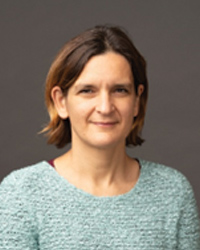
Professor Esther Duflo
Esther Duflo is the Abdul Latif Jameel Professor of Poverty Alleviation and Development Economics in the Department of Economics at the Massachusetts Institute of Technology and a co-founder and co-director of the Abdul Latif Jameel Poverty Action Lab (J-PAL). In her research, she seeks to understand the economic lives of the poor, with the aim to help design and evaluate social policies. She has worked on health, education, financial inclusion, environment and governance.
Professor Esther Duflo’s first degrees were in history and economics from Ecole Normale Superieure, Paris. She subsequently received a Ph.D. in Economics from MIT in 1999.
Duflo has received numerous academic honors and prizes including 2019 Sveriges Riksbank Prize in Economic Sciences in Memory of Alfred Nobel (with co-Laureates Abhijit Banerjee and Michael Kremer), the Princess of Asturias Award for Social Sciences (2015), the A.SK Social Science Award (2015), Infosys Prize (2014), the David N. Kershaw Award (2011), a John Bates Clark Medal (2010), and a MacArthur “Genius Grant” Fellowship (2009). With Abhijit Banerjee, she wrote Poor Economics: A Radical Rethinking of the Way to Fight Global Poverty, which won the Financial Times and Goldman Sachs Business Book of the Year Award in 2011 and has been translated into more than 17 languages, and Good Economics for Hard Times.
Duflo is a member of the National Academy of Sciences and a Corresponding Fellow of the British Academy.

Professor Sharon Goldfeld
Professor Sharon Goldfeld is a paediatrician, public health researcher and policy advisor focussing on child development and health equity. She is Director of the Centre for Community Child Health at the Royal Children’s Hospital, and Theme Director for Population Health at the Murdoch Children’s Research Institute. With a decade of experience in state government as a senior public servant in health and education, and an outstanding track record, Sharon has successfully straddled research and policy. Her expertise is highly sought after with appointments to government Expert Advisory Groups in health, education and social services departments including her recent appointment to the National Early Years Strategy Advisory Group.
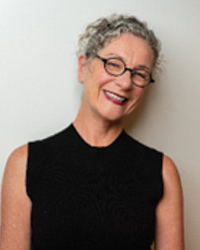
Dr Jenny Donovan
Dr Jenny Donovan is the inaugural CEO of the Australian Education Research Organisation. Prior to this role, she established and led the Centre for Education Statistics and Evaluation (CESE) as Executive Director for 8 years.
Dr Donovan began her career as a high school teacher in Sydney’s western suburbs. She has worked in a number of education roles in operational and policy areas, including some years as Deputy Director of a not-for-profit education assessment agency at the University of New South Wales.
In 2024 she was a member of Professor Mark Scott’s Teacher Education Expert Panel which delivered recommendations for reform to Initial Teacher Education that were accepted by Australia’s education Ministers. As a result, an evidence-based core curriculum will be implemented in all initial teacher education.
Jenny holds a Bachelor of Arts with a Diploma of Education from Macquarie University, MA (Hons) from UNSW and a PhD in history from the University of Sydney.
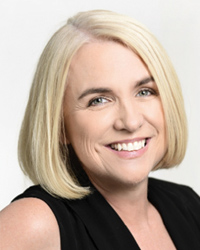
Dr Robyn Mildon
Robyn Mildon, PhD, is an internationally recognised figure in the field of research translation and implementation science and program and policy evaluations. She is the Founding Chief Executive Officer of the Centre for Evidence and Implementation (CEI www.ceiglobal.org ), a global social purpose organisation with offices in Australia, Singapore, the United Kingdom and Norway and whose work now spans across 12 countries. She is a Visiting Associate Professor at the Yoo Long Lin School of Medicine, National University of Singapore (NUS) where she helped establish The Centre for Holistic Initiatives for Learning and Development (CHILD) and the Behavioural and Implementation Science Interventions (BISI). Robyn is also an Adjunct Associate Professor at Monash University and served as the Chair of the Evidence and Implementation Summit 2023 (www.eisummit.org).
Robyn’s work has helped to advance the implementation of better evidence in policy and practice settings, improving the quality and effectiveness of health, education, and human services. She has authored or co-authored multiple peer-reviewed publications, commissioned evidence reviews and book chapters including being a co-author of an edited book Implementation Science 3.0 (Springer, 2020). In 2022, she was awarded the John Westbrook Award for Contributions to Knowledge Translation by the Campbell Collaboration. This international award recognises outstanding contributions to knowledge translation and the dissemination and implementation of evidence.
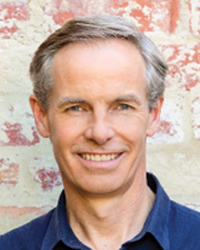
Professor Julian Elliott
Julian Elliott is one of the world’s leading innovators in the production and use of research evidence. He is the co-founder and CEO of the Future Evidence Foundation, a non-profit organisation that produces Covidence, the most widely used software for evidence synthesis, and developer of the Living Evidence model: trustworthy summaries of science that are kept up to date with the latest research. This model was widely used during the COVID-19 pandemic and is now being adopted worldwide, including through the Alliance for Living Evidence, a global collaboration established by Prof Elliott and supported by the Foundation.
Prof Elliott was the founding Chair of the Australian Living Evidence Consortium and established the Australian National Clinical Evidence Taskforce, both based at Cochrane Australia within Monash University’s School of Public Health and Preventive Medicine where he is a professor in evidence synthesis. He worked for many years as an infectious diseases physician and HIV clinical trialist, and is a recipient of the Australian Health Minister’s Award for Excellence in Health and Medical Research.
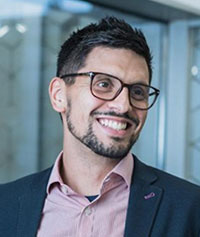
Dr Alex Gyani
Alex is the Managing Director of the Behavioural Insights Team’s APAC region. He leads the team’s work across Australia, Singapore, Indonesia and the wider region. He has spent his career supporting governments and organisations across the globe develop and evaluate innovative and evidence‑based practices.
Since joining the Behavioural Insights Team in 2012, Alex has worked in a diverse set of fields from antimicrobial resistance, domestic violence, innovation policy, mental health, energy usage, health system efficiency, obesity, financial regulation, employment services to education.
His PhD focused on encouraging psychological therapists to use evidence‑based treatments and encouraging people with anxiety and depression to seek treatment using a mobile phone app. In October 2012, this app was the top free health app on the Apple Store.
In 2018, he was named one of Apolitical’s 100 Future Government Leaders. He holds degrees from the University of Oxford and the University of Reading, as well as a research fellowship at the University of Melbourne’s School of Psychology. He has been based in Sydney since 2014.

